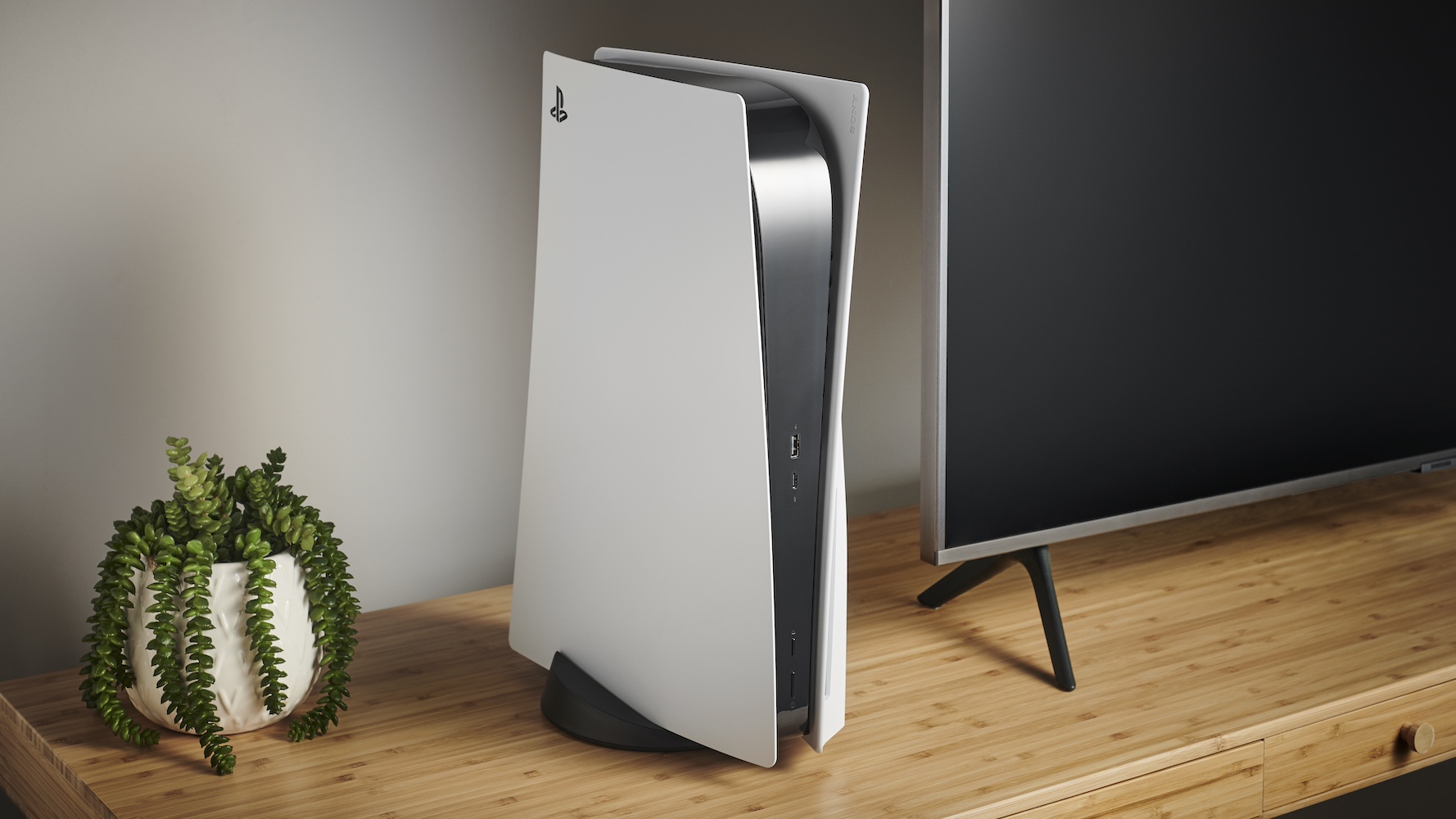Denon micro system's two-star beginnings to five-star triumph: What Hi-Fi? magazine, February 1997
Denon's slow burn and the halcyon days of budget stereo amplifiers
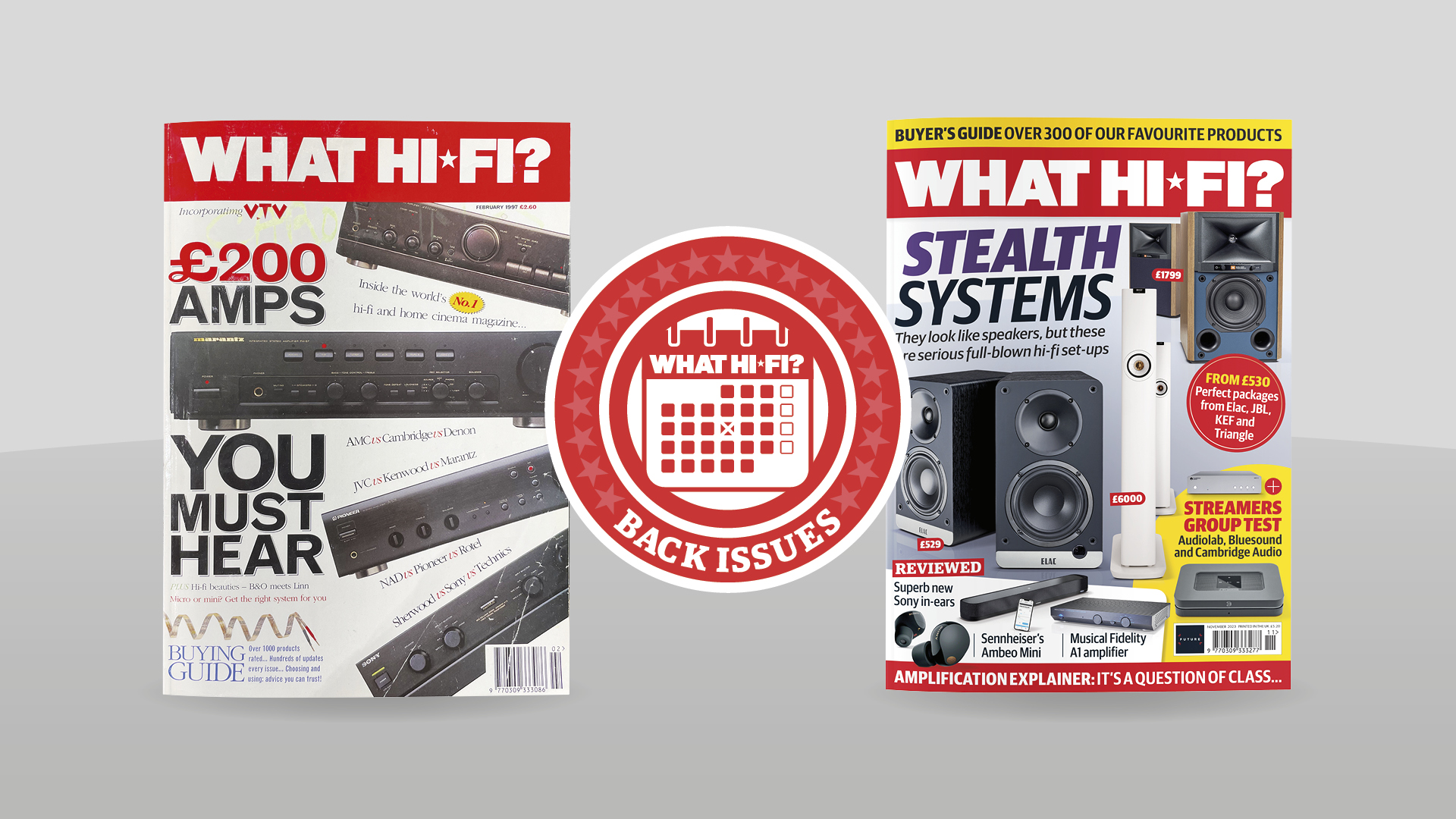
One thing truly jumped out at me when, in my regular visit to the What Hi-Fi? archive, I was flicking through the February 1997 issue.
And then, as usual, plenty more interesting stuff seemed to just fling itself off the page at me. It’s amazing how almost any issue I dive into will bring up points of note and interest to highlight the differences – and of course similarities – the third decade of the 21st century has with the relatively recent past.
(Twenty-six years is, I am disturbed to have to admit, relatively recent for me. Those lucky more youthful readers will have to forgive me for being so blasé about what may be a lifetime for you. That’s the throwaway generation for you, I guess…)
An amplification of amps
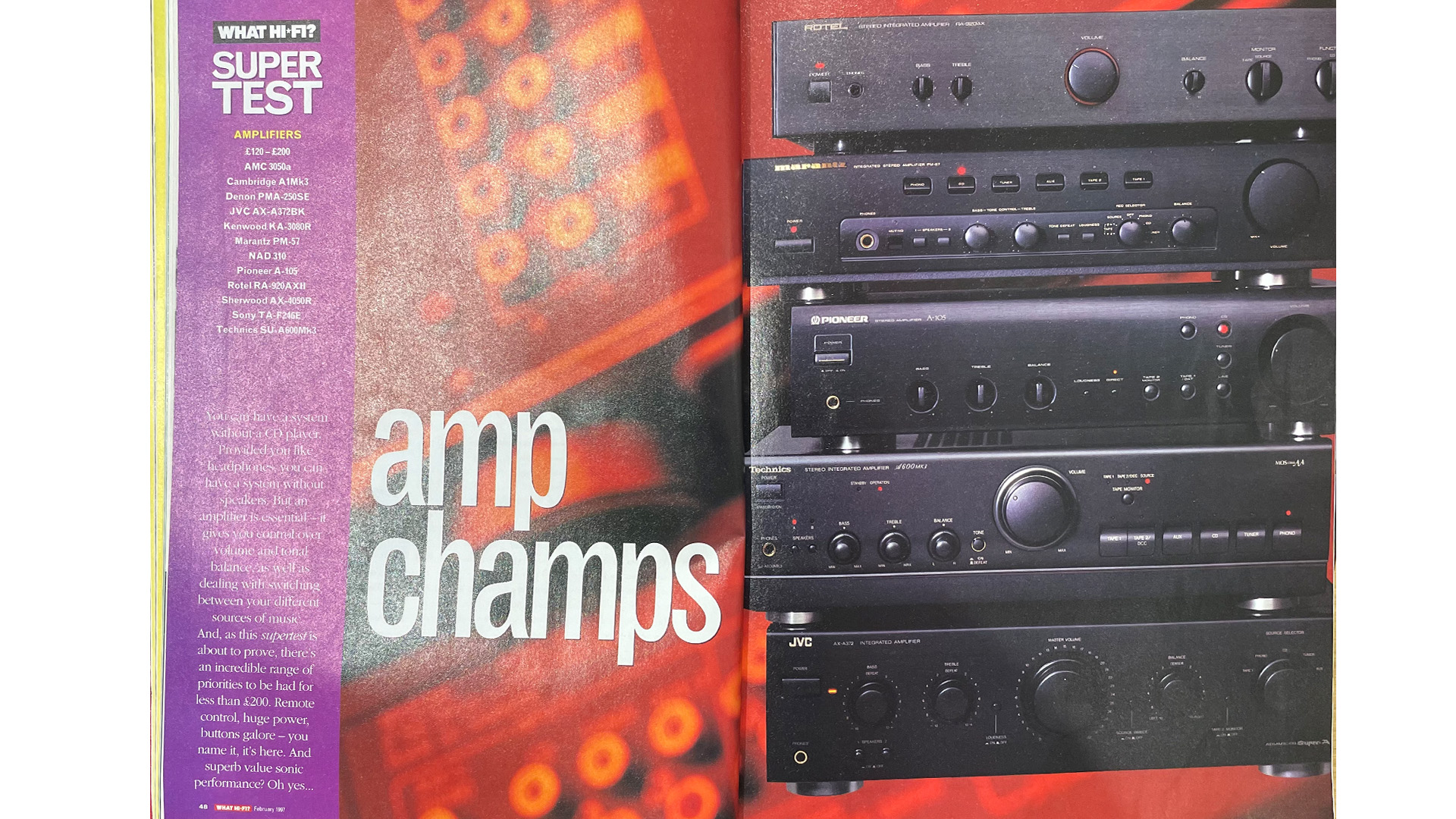
One look at the cover will reveal one major difference a quarter of a century has made: the sheer number of stereo amplifiers that were available for between £120 and £200. It’s not so much the price, of course – everything is relative – it’s more that there were 12 big brands all battling it out in a pretty tight arena. These days it would require a price gap probably two or three times as broad for us to be able to put such a classic Supertest together. (I am rather nostalgic for the grand old Supertest; but time and the internet have put paid to such things.)
First Test of a KEF legend
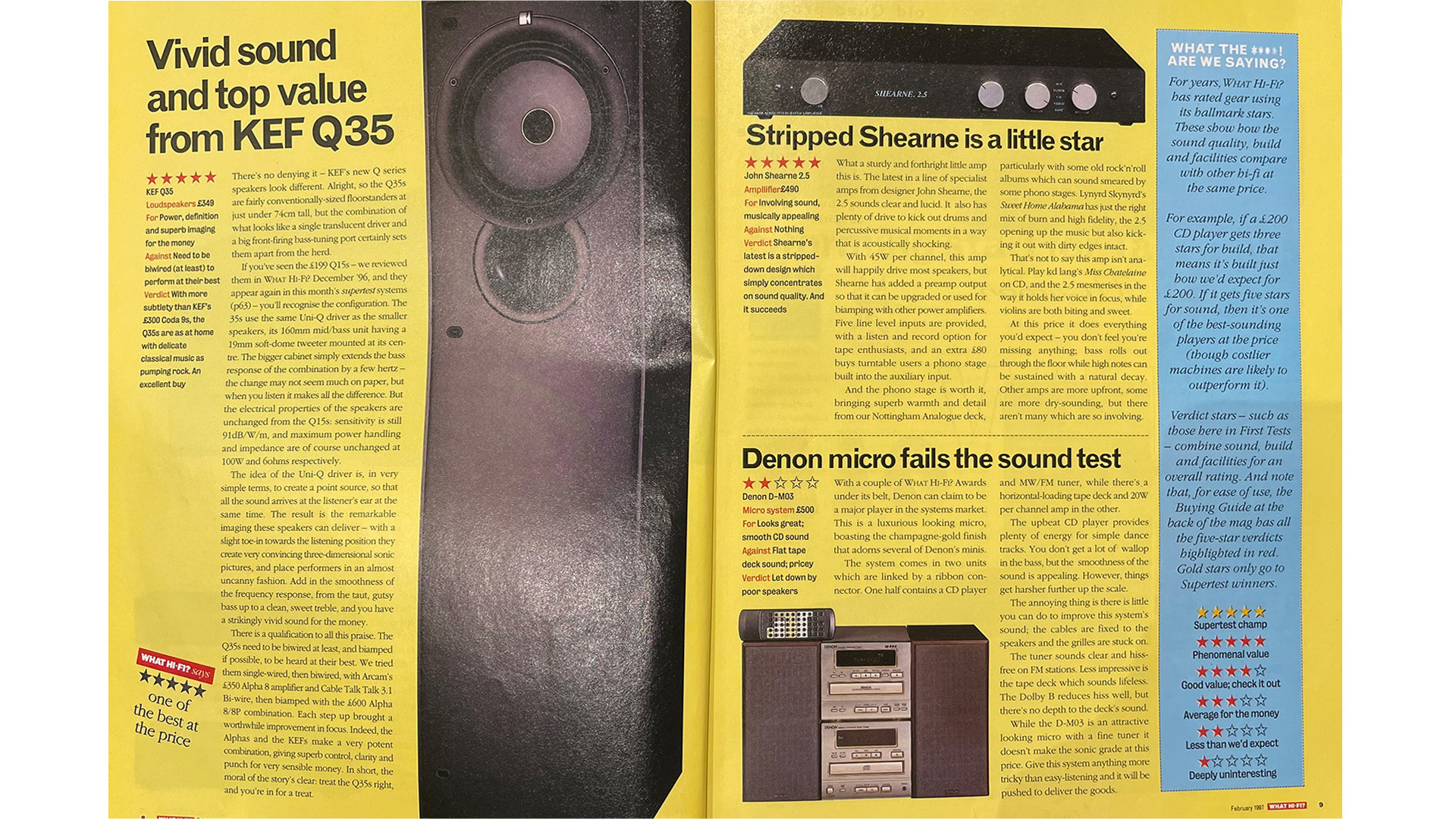
Some things from 1997 have very much remained the same, of course. KEF loudspeakers, for one, have this year revealed two stellar five-star models, the R3 Meta and R1 Reference Meta. Rewind to 26 years ago, here is a First Test of the stunning Q35 floorstander – one of our favourite KEF products of all time. We say of them: “Add in the smoothness of the frequency response, from the taut, gutsy bass up to a clean, sweet treble, and you have a strikingly vivid sound for the money.”
There is, however, a rather old-school caveat: “There is a qualification to all this praise. The Q35s need to be bi-wired at least, and bi-amped if possible, to be heard at their best.” Bi-amping and bi-wiring certainly work to improve sound, but it was very much in fashion in the 90s, and it’s probable that we would now recommend upgrading the amplifier rather than adding an extra, relatively cheaper, power amp.
On a side note, a quick tip for you: if you have speakers with bi-wire terminals, and are running just a single set of speaker cables to them, it will probably pay to replace the links between the two sets of terminals with a short piece of speaker cable; the sonic improvements can be clear.
Get the What Hi-Fi? Newsletter
The latest hi-fi, home cinema and tech news, reviews, buying advice and deals, direct to your inbox.
The light of two stars
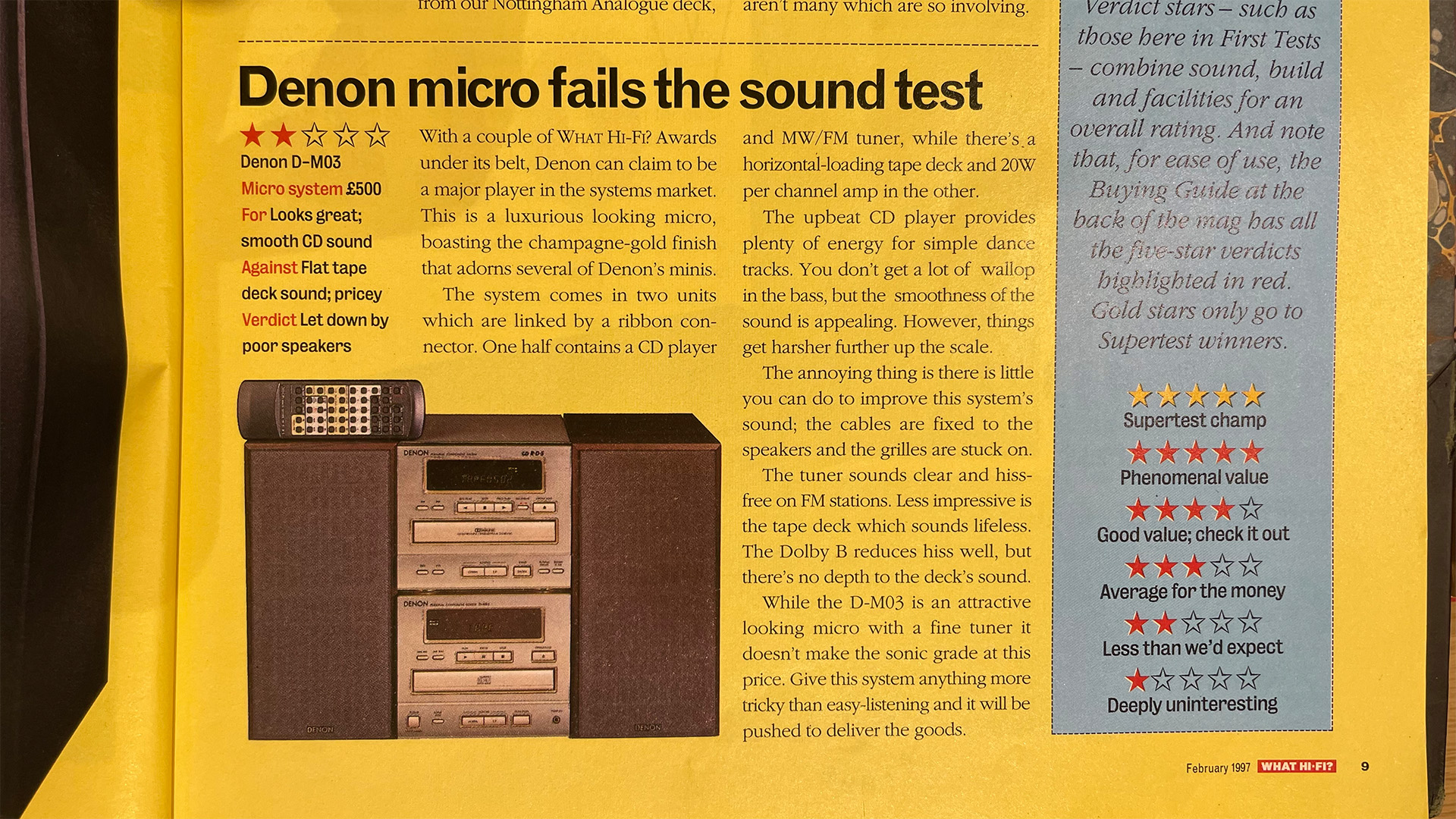
Also on the page with the excellent KEF speakers is what first jumped out at me when I was flicking through this magazine.
What’s this? A Denon micro system rated at two stars? Not only that, it's a Denon micro system with a model number starting D-Mxx that received such a poor showing. A quick glance at our What Hi-Fi? Awards pages will show that a Denon micro system with that naming convention has been a nailed-on cert as our Best Buy system in its category for comfortably more than a decade, from 2013’s Best music system up to £400 D-M39DAB to our current Best micro system 2022 Award-winner, the D-M41DAB.
Things, it would seem, were not always so rosy for this perennial winner. As well as a rather eye-watering price – it would have set you back £500 back in 1997; the latest iteration is nearer £250 – It seems that our main issues were with the tape deck, which sounded “lifeless”, and more importantly the speakers which had stuck-on grilles, and fixed cables. All of which meant that upgrading was pretty tricky; two stars was the sadly inevitable verdict.
Suffice it to say, things have improved all round for Denon on the micro-system front, which now sports Bluetooth alongside the CD player – and it sounds excellent for the money.
There's hope for us all…
More:
New issue of What Hi-Fi? out now: the best compact all-in-one hi-fi speaker systems
Read our latest five-star KEF R3 Meta review
PMC's superb Prodigy 1 illustrate the danger of perceived value

Jonathan Evans is the editor of What Hi-Fi? magazine, and has been with the title for 18 years or so. He has been a journalist for more than three decades now, working on a variety of technology and motoring titles, including Stuff, Autocar and Jaguar. With his background in sub-editing and magazine production, he likes nothing more than a discussion on the finer points of grammar. And golf.
